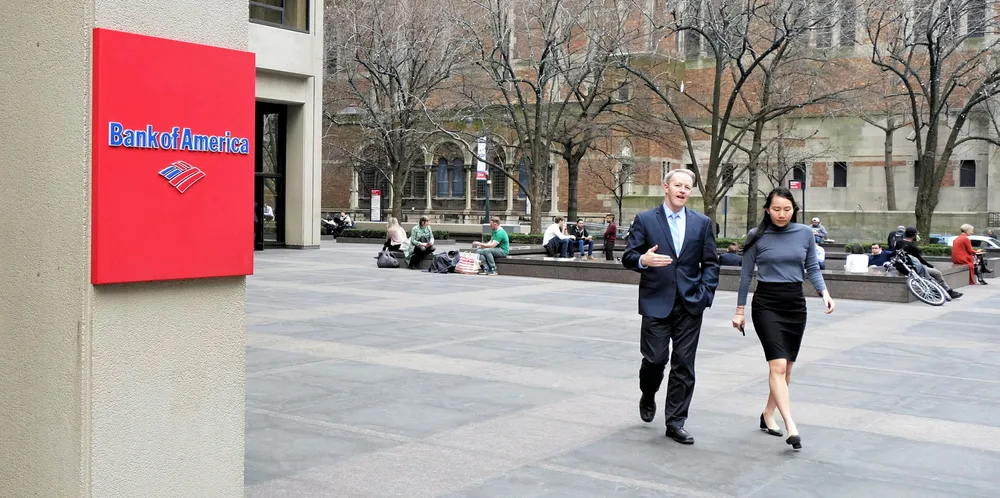'Smaller developers might struggle': scramble for investors as tax equity market tightens

The US tax equity market has tightened leaving some wind developers scrambling to find companies with tax capacity – including web-based retail giants such as Amazon – to invest in their projects, or risk seeing some of them stall in a coronavirus economy.
“It is not unusual lately to see projects that close on debt but without a tax equity takeout in place,” Keith Martin, co-head of US projects at law firm Norton Rose Fulbright, and an expert on renewable energy tax issues, said on a webinar recently.
Clean energy advocacy groups and trade associations have been sounding the alarm bell on shortfalls in tax equity availability since early in the second quarter, but the issue apparently has become more acute of late.
The US wind and solar sectors depend heavily on tax equity investment to help finance project developments, and 2020 deal volume before Covid-19 was forecast at a record $15bn - 65% wind - versus around $12.5bn in 2019.
Tax equity transactions involve one party (the project developer) agreeing to assign the rights to claim the federal production tax credit (PTC) or investment tax credit (ITC) to another party in exchange for an equity investment (cash financing). This exchange is often referred to as “monetising” the tax credits.
The PTC at 100% value is worth $24/MWh for energy generated over a project’s initial decade of operation. The ITC for wind this year is 18% of a project's capital expenditures.
The tax equity crunch reflects Covid-19 impacts both at money-centred banks that dominate this form of investment and in the national economy.
The three largest US banks by assets – Bank of America, Citigroup and JP Morgan – saw their second quarter profits tumble 50% or more from a year earlier, reflecting the economic collapse induced by the pandemic. They set aside almost $20bn to cover potentially rising losses on their commercial and consumer loans. Those banks control at least 60% of the tax equity market for renewables.
There are normally about 15 major tax equity investors that can lead and negotiate transactions, and roughly the same amount that follow and join deals. That universe is smaller now as players move to the sidelines to reassess their tax capacity heading into 2021.
Martin noted that there is an increasing rush to finish deals that were “slow-walked during the spring due to the economic shutdown”.
Yet, the potential negative impact the tightening supply of tax equity could have on the 2020 wind market is not fully clear.
The fallout appears manageable for the largest project sponsors since most were given first allocations on tax equity financing last year for 2020 developments. In cases where they can't obtain tax equity, they have the capability to readily access debt markets for solid projects and if necessary, finance them off their balance sheets.
More at risk are less capitalised second tier-size sponsors or those with projects that lack investment grade off-take, which many tax equity investors are shying away from in the present economy.
“Smaller developers might struggle, particularly to the extent that banks have less amount of taxable income,” John Ketchum, chief executive of NextEra Energy Resources, the nation’s largest wind and solar developer, said on a recent earnings call.
With NextEra, Avangrid, Berkshire Hathaway and other big name players overcoming supply chain hurdles from Covid and pushing projects toward completion, private consultancies continue to forecast the industry will build between 10GW and 13GW of new capacity this year versus 9.1GW in 2019.
The Department of Treasury in May also gave the wind industry an additional year - five versus four - to complete projects whose construction began in 2016 and 2017 to allow sponsors more time to qualify them for PTCs at full or 80% value in recognition of Covid–related impacts to supply chains and workforces.
Offshore wind projects, however, were excluded. They need to begin construction this year to qualify for the 18% ITC.
The tax equity squeeze has prompted renewables lobby associations to join forces with other unrelated corporate groups to lobby Congress for broad-based business tax credit relief in a potential new Covid economic stimulus bill in August.
The idea, which is getting traction among some Democrats and Republicans there, is to let companies apply to the Internal Revenue Service – the US tax authority – for quick refunds for 31 types of business tax credits. This would apply only for credits earned in 2019 and this year. This language would be attached to the stimulus bill.
The principal benefit for wind developers is that a direct refund in cash would, in principle, monetise tax credits effectively and quickly, helping them bolster balance sheets amid ongoing Covid-spawned challenges.
(Copyright)